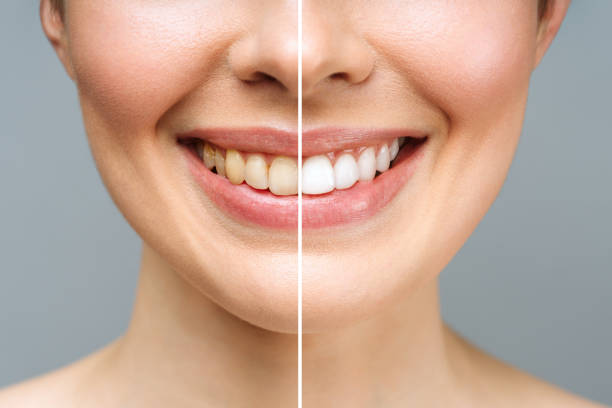
Teeth scaling and polishing are common dental procedures used to clean the teeth and maintain healthy gums. They are essential for removing plaque, tartar, and stains that cannot be removed by daily brushing. Many people visit their dentist regularly for these Teeth scaling and polishing to prevent dental problems like gum disease and tooth decay.
What Is Teeth Scaling?
Teeth scaling is a deep cleaning process that removes plaque and tartar (calculus) from the surface of the teeth and underneath the gums. This buildup often occurs due to poor oral hygiene, and over time, it hardens into tartar. Scaling is done using special tools that gently remove the hard deposits without damaging the teeth.
What Is Teeth Polishing?
Polishing is usually done after scaling. This step helps to smooth the surface of the teeth and remove minor stains. A smooth surface prevents plaque from sticking easily in the future. Polishing is often done with a rotating rubber cup and a special polishing paste that cleans the teeth thoroughly.
Why Are Scaling and Polishing Important?
These procedures are important for several reasons:
-
Preventing gum disease: Tartar buildup can irritate the gums and cause inflammation or bleeding.
-
Preventing tooth decay: Plaque contains bacteria that produce acids that wear down the enamel.
-
Improving appearance: Polishing removes surface stains, giving a cleaner and brighter look.
-
Fresh breath: Removing bacteria and buildup helps eliminate bad breath.
-
Better oral hygiene: Clean teeth are easier to maintain through regular brushing and flossing.
How Is the Procedure Performed?
The process of teeth scaling and polishing usually involves the following steps:
-
Examination: The dentist checks the mouth to assess the condition of the teeth and gums.
-
Scaling: Manual or ultrasonic instruments are used to remove tartar from the teeth and below the gum line.
-
Rinsing: Water or a dental spray is used to wash away the debris.
-
Polishing: The dentist applies a paste and uses a rotating brush to polish each tooth.
-
Fluoride (optional): Sometimes, a fluoride treatment is applied to strengthen the enamel.
The entire process is generally painless, but slight discomfort may be felt if there is heavy tartar buildup or gum sensitivity.
Who Needs Scaling and Polishing?
Most people can benefit from these procedures, especially those who:
-
Do not brush or floss regularly
-
Smoke or use tobacco
-
Have a history of gum problems
-
Wear braces or other dental appliances
-
Eat sugary or sticky foods frequently
-
Have stained teeth due to coffee, tea, or red wine
Regular dental visits help determine how often these treatments are needed.
How Often Should You Get It Done?
Dentists usually recommend scaling and polishing every six months. However, the frequency may vary depending on individual oral health. People with gum disease or rapid tartar buildup may need it more often, while others with good dental habits might need it less frequently.
Benefits of Regular Scaling and Polishing
There are many advantages of maintaining a routine for these procedures:
-
Healthy gums: Reduces the risk of gingivitis and periodontitis.
-
Clean teeth: Keeps the teeth free from harmful deposits.
-
Better appearance: Makes the teeth look whiter and cleaner.
-
Early detection: Dentists can spot problems early during routine cleanings.
-
Overall health: Good oral hygiene supports general health and reduces risk of infection.
Side Effects and Precautions
Although safe, some people may experience mild side effects such as:
-
Gum soreness
-
Tooth sensitivity to hot or cold
-
Minor bleeding during the procedure
These symptoms usually go away within a day or two. Drinking water and avoiding hot or spicy foods right after the treatment can help reduce discomfort.
How to Maintain Clean Teeth After the Procedure
After getting scaling and polishing, it is important to maintain oral hygiene at home. Follow these tips:
-
Brush your teeth at least twice daily using a soft-bristled toothbrush.
-
Use fluoride toothpaste to protect the enamel.
-
Floss daily to remove plaque between the teeth.
-
Limit sugary foods and drinks.
-
Avoid smoking and tobacco products.
-
Drink plenty of water to rinse the mouth and stay hydrated.
Following these habits can reduce the need for frequent scaling and keep your smile healthy.
Myths About Scaling and Polishing
There are some common misunderstandings about these dental procedures:
-
It weakens teeth: This is false. The tools used do not harm the enamel.
-
It causes gaps between teeth: The gaps become visible only after the tartar is removed, not because of the procedure.
-
It is painful: Most people find it comfortable. Pain occurs only if gums are already inflamed.
-
It is only for cosmetic reasons: Though it improves appearance, the main goal is to prevent disease.
Understanding the truth behind these myths helps people make informed choices about their dental health.
Cost and Accessibility
The cost of scaling and polishing varies based on location, dental clinic, and the extent of cleaning needed. Some clinics offer packages or discounts for regular patients. The procedure is widely available and does not require hospitalization. It is a basic dental service found in almost every clinic.
Conclusion
- Teeth scaling and polishing are simple but effective procedures that help maintain strong teeth and healthy gums. Regular cleanings, combined with good oral care at home, can prevent many dental problems and reduce the need for complex treatments in the future. These services are safe, affordable, and beneficial for people of all ages. Regular visits to a dental professional for cleanings are a smart step toward lasting oral health.
Comments on “Complete Guide to Teeth Scaling and Polishing for Oral Health”